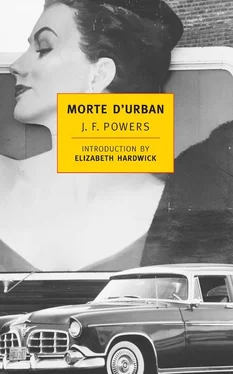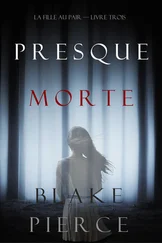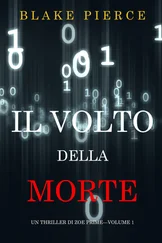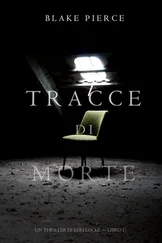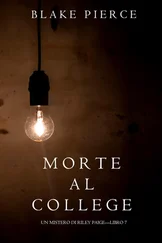Father Urban started to put the bill in his pocket.
“I’ll take that,” said Billy, from the car.
Monsignor Renton headed back to Great Plains, and Father Urban drove Billy and Mr Robertson to the Hill where he introduced them to Wilf. “I’ve heard a lot about you, Mr Cosgrove,” said Wilf, and offered to show Billy and Mr Robertson around. “This, of course, is the office.” And thus another tour got under way. It moved down the corridor to the refectory (“Mr Cosgrove, you have no idea how much we’ve enjoyed the set, and I trust you got my letter to that effect”) and then to the kitchen (“Electric mixer”) and then to the chapel, but there Father Urban remained on his knees and left the tour — recalling the one he’d taken in November.
The place was in better shape than it had been then. At the moment, there were a half-dozen retreatants in residence, not bad for the middle of the week. The absence of retreatants, in days past, had been one of the weak points in Wilf’s tours. Physically, too, the place was in better shape now. Still too many rocking chairs around, but the Rec Room now had four easy chairs (including the one that had been on loan to Father Urban), Parlors A and B had been redone (and renamed St Thomas Aquinas and SS. Cyril and Methodius), there was color TV in the refectory, there was a sacristy off the chapel, there were fresh new signs posted throughout the house, and the driveway was now designated as “one way.” And something, it appeared, was going to happen in the chapel.
Rising from his knees, Father Urban visited with Jack and Brother Harold, who had come in carrying a ladder. They were preparing for the morrow, they told Father Urban. Then, and there, in the chapel, after months of apprenticeship and weeks of planning, Brother Harold was to have his big chance as a sacred artist. Father Urban, glancing at the cartoons the artist had made, was relieved that Billy hadn’t seen them. “They’re not representational in the photographic sense,” said Brother Harold of some of his figures. “So I see,” said Father Urban. And still, he thought, once you accepted the idea that the chapel would be “contemporary” (to the extent that paint could counteract such evidences to the contrary as the pews and the altar), maybe it wouldn’t be so bad. “How’s it going, Jack?”
“I can’t complain,” Jack said.
Father Urban went to Wilf’s office and made a few telephone calls, mostly to pass the time of day. “No, nothing special, George. I happened to be thinking of you. How’s that virus? Good. And Marge? Good. No, I’m at the Hill. At the moment, yes. Nothing much, but I may have something to tell you in a few days. Good. ’Bye, George.”
“Say,” said Wilf, entering the office when the tour had ended. “If you can get away from St Monica’s for a couple of days, I think you’d better go down to Chicago. I’d go myself, but I can’t spare the time. Anyway, you’re the logical choice to put this thing over with Father Boniface and the others.”
“Whatever you say,” Father Urban said. “If I’m back for confessions on Saturday, it’ll be O.K.”
“I’m only sorry our guests won’t stay and eat here this evening. I believe it’s northern pike.”
“Don’t tempt us,” said Billy. His plan, though, called for them to be on their way. They had to catch the Empire Builder on which he’d reserved a suite (so Father Urban needn’t worry about space), and they’d rent a car in Great Plains, or take a taxi to the train.
Billy wasn’t kidding, Father Urban realized, though it would be a ninety-mile fare from Great Plains to the Empire Builder’s nearest stop. “No, we’ll take my car. I’ll pick it up on the way back,” said Father Urban.
After the guests had sampled the water, they said good-bye to Wilf and the Hill, and Father Urban drove them to St Monica’s. There he packed his bag and arranged for Johnny Chumley to borrow a parishioner’s second car. The next thing they knew, after a couple of drinks in the upper room, it was time to eat. They decided they couldn’t do better than the Greenwich Village Room. During dinner, and for almost two hours afterward, going from Drambuies to scotches again, they talked golf.
The fairways at the Hill would be shaggy for the first year or two, Mr Robertson said, but the soil would be ideal for growing grass. Most of the area to be used was already in acceptable grass. Stump clearance could begin at once, reseeding and rolling very soon. The greens had to be constructed from the bottom up, since they had to retain moisture as well as drain water, and they would be topped from sod. If all went well, they’d be playable by early summer. If Father Urban should ever want to expand the course to eighteen holes, or even to thirty-six, the land would always be there.
They went on to discuss famous courses they’d played. Billy and Mr Robertson had been disappointed by St Andrews, but they were not without reverence for it as a shrine. Mr Robertson, or Chub, as Billy and Father Urban called him, spoke of courses he’d laid out (two of which Father Urban was certain he’d played, and perhaps two more), and then they got onto the subject of famous golfers and famous shots. In the end, as must often happen when good fellows get together, they considered the life and times of the great Walter Hagen. Both Billy and Mr Robertson knew stories that hadn’t appeared in the Haig’s autobiography. “I read the book, but I’m sorry to say I never saw the man play,” said Father Urban. “He was raised in the Church, you know.”
At one point during the evening, Father Urban left the table to make a phone call — to Dickie Thwaites. (“And say hello to your mother.”)
Finally, they pulled themselves together and hit the road, Father Urban driving, and Billy and Mr Robertson singing themselves to sleep in the back seat. Father Urban didn’t disturb them until the Builder, as Billy called it, was actually standing in the station. With the help of a couple of porters, Billy and Mr Robertson got settled for what remained of the night. They all rose late the next morning, had brunch together, and arrived in Chicago at 2 P.M., right on time. “That’s the Builder for you, and what a ride!” said Billy.
Paul met them in the Rolls. He dropped Billy and Mr Robertson off on Michigan Avenue, where they both had their offices, and then he drove Father Urban to his destination. Paul had cried out, “Well, look who’s here!” when he saw Father Urban, but he didn’t get any encouragement to continue along such familiar lines. Father Urban had thought of Paul before he saw him and had decided to straighten out their relationship. Father Urban’s new attitude was not so much cool as grave and preoccupied. When the Rolls turned into the Novitiate grounds, into the Avenue of Elms, as it was called, Father Urban looked up from his breviary and murmured, “Ah, here we are,” and when the Rolls stopped in front of St Clement’s Hall, he murmured, “Ah, thank you, Paul.”
Father Boniface was in his room, recovering from a touch of flu. When he learned the purpose of Father Urban’s visit, he said, “We won’t discuss these matters any further now. These are matters for the chapter to take up in the morning.”
Father Urban spent the rest of the day walking and talking with men who could be helpful to him in the morning, but he also said hello— hello! to a number of dim bulbs whose existence he’d always tried to overlook in the past. “Great to be back, if only for a little while.” In general, he got a warm welcome.
Quite late that night, he smoked a cigar with Father Louis, and the talk turned to Wilf. “Oh, he’s not so bad,” said Father Urban. “Come off it,” said Father Louis — in some ways a man much like Father Urban, another one of Father Placidus’s boys, a few years younger, yes, but almost in his flight as a golfer, a man who cut a good figure, who had a mind he could use if the occasion ever warranted it (he was presently employed as a professor of moral theology), and also a man who’d done a stretch at St Clement’s Hill. He had spent all but one of his seminary years with the Jesuits, and would be with them yet, he said, but for a run-in with his confessor over the value of St Ignatius’s “Exercises” as prose. He had been asked to leave. He had met Father Placidus and joined the Clementines on the first bounce, as a divorced man takes up with the first floosie he meets, so he’d once told Father Urban. “Wait’ll you have to go back there and live with him,” he told Father Urban now, making too much of the fact that Father Urban had been living away from the Hill. “A guy like that wouldn’t last two minutes in any other outfit.” This landed them on familiar ground. At this point, Father Urban usually said, “ Like ,” and Father Louis said, “Yes, like ,” but that night Father Urban, much as he wanted to discourage Father Louis in his “order pride,” a peculiar form of order pride in that it wasn’t his own order he was proud of, let it pass. He had been everybody’s pal that day, and would be the same with the man who was probably his best friend. They went on to discuss the matters to be taken up by the chapter in the morning. “More power to you,” Father Louis said. “In any other outfit, they’d kiss your feet.”
Читать дальше
